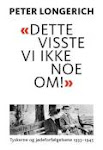There is a certain class and kind of literature that has the quality of universality. It has something in it that reaches the high and the low, the wise and the foolish, the educated and the illiterate. This quality in it makes it ring as true as a bell. After all, in this transitory life, we are all, high and low, educated and illiterate, on one and the same pilgrimage. The essential frame of life is the same for all. The Anglo-Saxon who spoke of life as a bird passing a moment through a lighted hall and out into the darkness spoke down the ages to twenty generations. When Shakespeare said, "tomorrow and tomorrow and tomorrow" the words were as good yesterday as today.
What we call the classics are the books that have enough of this universal appeal to give them their place and keep them there. One might wonder why it often comes about that books seem written for one class, or in a language largely out of common understanding, yet reach and hold a wide enough world to make them classics. The reason is, I think that appreciation is a queer thing running in sympathetic channels. Children listen, enthralled with things they cannot understand. Clergymen love sea-stories and sea-captains read theology. When a man sits buried in a book, it is not the man that you see and know that is reading. Deep down in him are antecedent generations- soldiers, pirates, martyrs, fading back to cave men. As he reads, the "universal" book is calling to one of them.
Stephen Leacock, Who Canonizes the Classics
7 years ago





No comments:
Post a Comment